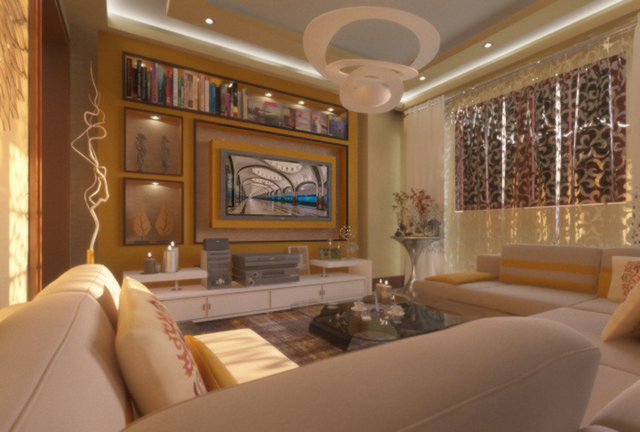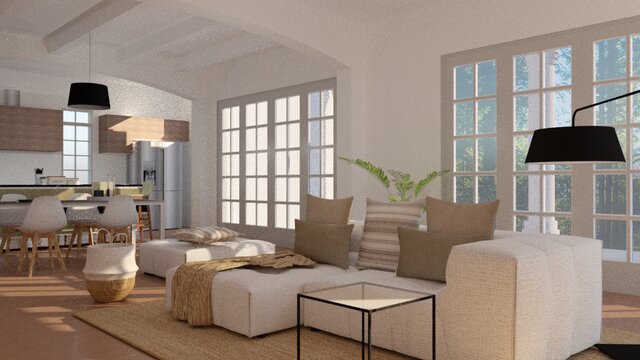Effective marketing leads to better responses from potential customers. This is true for all businesses in every industry, and real estate is no exception. Despite downturns now and then, the real estate market has always been crowded not only by first-time homebuyers but also by professionals behind the commodity, including developers, architectural design services, brokers, engineers, interior designers, and so on. Every single one of them is fighting to get a slice of the pie.
When you’re trying to sell something, it’s mostly about getting people convinced that the product is exactly as advertised. It’s easier with a physical product because you may be able to give consumers a chance to try it first, like a car dealership that lets you test drive a car. While real estate businesses also sell physical products, pre-selling is often necessary to reduce financial losses even before the financing and construction begin.
Selling unfinished properties used to be challenging, but not anymore thanks to 3D rendering. With hundreds of CAD design services their services to create digital visualizations of any property in hyper-realistic quality, real estate marketing has become much more efficient. Everyone has seen what a 3D rendering of a house looks like. When used in the real estate industry, the visuals can be different because they showcase as much detail as possible.

A 3D render is sometimes made into an image instead of an animation. Even still images of hyper-realistic quality should be able to capture the general attractiveness of the physical building and the atmosphere inside and around the house.
 Table of Contents
Table of Contents
Visualize property before construction begins
Everything happens on the computer, so the digital version of a building may exist before the construction process is complete. A well-trained 3D rendering service professional should be able to make a digital drawing of a house from scratch. Every single part of the house is visualized, including the room layout, furniture, decorations, flooring, colors, lawn, and the surrounding area as well. Given the specific parameter and instructions, the entire building is drawn to match the specifications, such as the architectural style and dimension.
It does not matter if the building is a single-family home or commercial building—a 3D visualization gives all the freedom one may need. The only limit is how skilled and creative the artist is. Since specifications have already been made prior to the actual construction, the visualization process doesn’t have to wait until the physical house begins to take shape. 3D rendering work is not as labor-intensive as construction; a small team of proficient artists is more than enough to get the job done within two or three weeks per property, not because it’s an easy process but because you have capable 3D architectural rendering services handling the work.
The finished work will showcase what the property should look like when construction is finished, and in the meantime, you can use the rendering as marketing material. Hyper-realistic images, video animations, and VR can help potential buyers visualize how it feels living inside the property long before they make the decision to purchase.
Showcase the property’s most desirable aspects
A different aspect of the property attracts different buyers. Similar to other products like cars, computers, or smartphones, companies have a specific product line for any particular customer demographic. One group of potential buyers may like a practical and fuel-efficient car, while another emphasizes style and performance. The same phenomenon is observable in other industries, including real estate. Some people are in the market for a new house that boasts sustainability equipped with smart appliances, an understated design, and solar panels.
Then you have buyers who demand an old-fashioned style with luxuriousness inside. Certain demographics are undecided about what they want to get, and this is where the marketing function of a 3D rendering comes into play. Use images to showcase the property’s best features to be constructed; this can be a kitchen design with granite countertop, a sunroom with views of the sky at night, or industrial style furniture. Based on the 3D rendering, it gets easier to explain what buyers will get for the amount of money they are willing to spend.

Things get more complicated if the project is a residential complex rather than a single property. But with a hyper-realistic 3D rendering, you can display the best features of both the house and the amenities or convenient factors available for residents. Basically, anything that makes the complex better will attract more buyers. If you have to wait until everything is materialized, it will take many years until you secure a considerable return on investment. 3D visualizer services can help visualize the entirety of the neighborhood and the environment around it in vivid detail, helping you make a future sale now.
Easy design refinements
The digital version of a house is easy and cheap to refine. The first to see the 3D rendering of a house are the project leaders, including developers, investors, architects, and engineering and design services involved in the project. What customers see is basically the final plan based on which the physical object would be constructed. Before the rendering work is approved as marketing material, it may need to go back and forth between the 3D artist and project leader for several modifications.
Design revisions are not uncommon. It’s easy to spot room for improvement in a 3D rendering; developers can change their mind about certain aspects of the house, which can be as trivial as wall color but as complex as the floor plan. Since 3D rendering is done on a computer, making changes is budget-friendly and quick. There can be several reasons for the changes—the rendering artist fails to meet the specification, design flaws, buyer’s demands, financial issues, etc.
In any case, it is always better to catch problems fast. With a 3D rendering, architectural planning and design services can see if the design is not very practical for most lifestyles or that the planned room layout may cause a usability problem. Getting that kind of information before the house is built allows the design process to move forward more efficiently. Once construction begins, it’s usually too late to make any considerable modification to the plan without restarting the whole process and losing money. Thanks to 3D rendering technology, you have every chance to make sure that the house will be easy to sell before any buyer gets to see the plan.
Create an emotional connection between buyer and property
The best kind of advertisement is one that evokes the audience’s feelings. The main job of professional 3D commercial rendering services is to make hyper-realistic digital images or videos of a physical object, such as a house. Hyper-realistic imagery is almost like a photograph but re-touched with a myriad of fine details to make it much more lifelike. Let us say the rendering is based on a photograph of a bathroom. In the world of 3D rendering, a still image that depicts an actual bathroom is often not enough.
Instead of merely replicating the image, an artist adds an assortment of digital effects. For example, condensation on glass surfaces, visible reflection on water droplets left on the surface of a sink, shadows, and so on. At the end of the process, it is more than just a photo of a bathroom, but an appealing sight of everything that is usually seen in any bathroom, giving the impression that someone actually lives in the house.
The same thing applies to the exterior with the addition of weather effects, natural lighting, sunray, clouds, birds, or morning dew. It is not actually the building itself that creates an emotional connection, but the atmosphere inside and outside the property. The impression of life in and around the house is a stronger selling point than any photograph.
Sensible communication tool
Technical drawings are an effective communication tool for mechanical engineering services, but not for buyers. Many people cannot correctly visualize what a house will look like by looking at the 2D floor plan. Even if they are interested in taking a closer look, there is a real risk of misunderstanding the image. You must explain in length how any room or other part of the house will be comfortable and aesthetically good.
All 3D renderings and animations can be easily posted to social media or sent to a phone where buyers can see over and over again at home. The most important thing is that the images and video animations are a lot easier to understand without requiring any explanation. Think of it as a what-you-see-is-what-you-get (WYSIWYG) approach to real estate marketing.
You are selling a story, not the house
At this point, when the construction is not yet complete, what you’re selling is the story of the house rather than the physical building. There is no physical building for buyers to touch and see, but you have the opportunity to tell them that the house has everything they need and is comfortable. Without clear visualization of the house, to begin with, it would be very difficult to convince them.

You can use 3D architectural site plan services to show customers that the house is something real, even if, in reality, it doesn’t exist yet. Video animation triggers the imagination inside buyers’ minds as if they are already there in the virtual environment surrounded by a perfect setting of a beautiful life.
Cad Crowd’s 3D rendering services at your disposal
Cad Crowd has access to a broad network of 3D rendering professionals to assist you with your design projects. Contact us for a free quote today.
